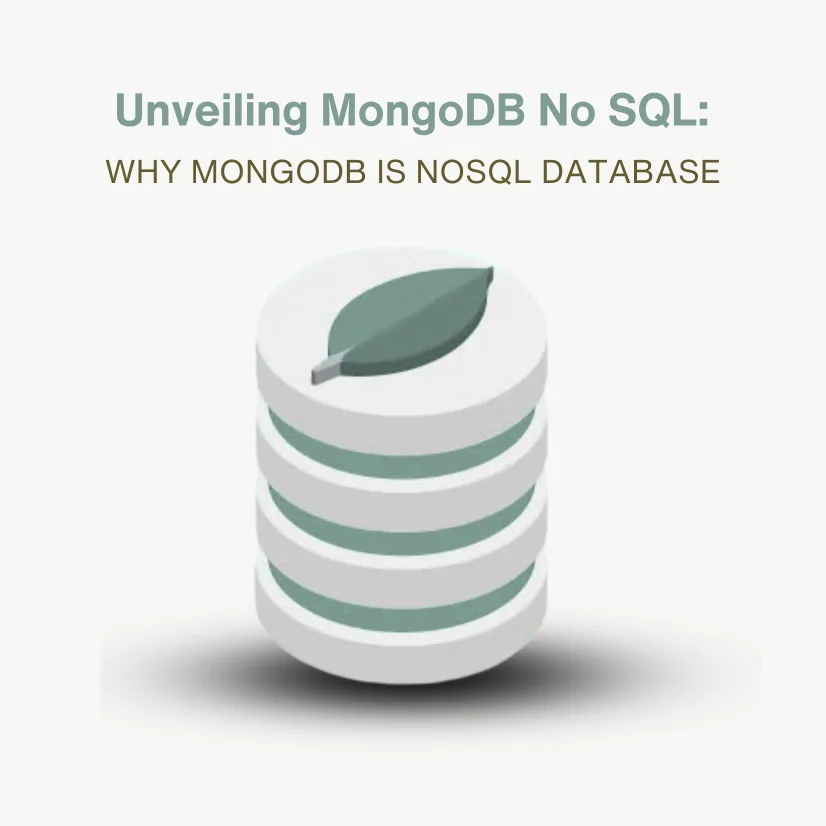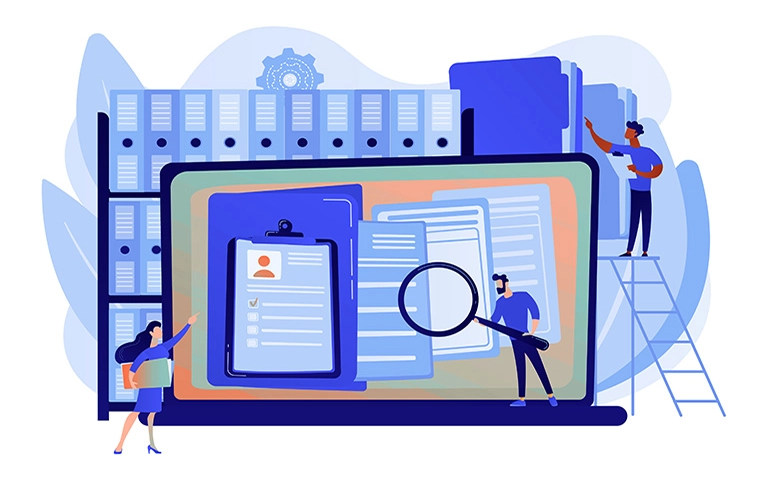The New Era of AI in 2025: From Gemini 3 to Creative AIs
Learn about the best AI tools for 2025, including Nano...
We use cookies for our website to give you the most relevant experience by remembering your preferences. By clicking “accept”, you consent to use of ALL the cookies
This website uses cookies to improve your experience while you navigate through the website. Out of these, the cookies that are categorized as necessary are stored on your browser as they are essential for the working of basic functionalities of the website. We also use third-party cookies that help us analyze and understand how you use this website. These cookies will be stored in your browser only with your consent. You also have the option to opt-out of these cookies. But opting out of some of these cookies may affect your browsing experience.
Necessary cookies are absolutely essential for the website to function properly. These cookies ensure basic functionalities and security features of the website, anonymously.
| Cookie | Duration | Description |
|---|---|---|
| cookielawinfo-checkbox-functional | 11 months | This cookie is set by GDPR Cookie Consent plugin. The cookie is used to store the user consent for the cookies in the category “Analytics”. |
| cookielawinfo-checkbox-functional | 11 months | The cookie is set by GDPR cookie consent to record the user consent for the cookies in the category “Functional”. |
| cookielawinfo-checkbox-necessary | 11 months | This cookie is set by GDPR Cookie Consent plugin. The cookies is used to store the user consent for the cookies in the category “Necessary”. |
| cookielawinfo-checkbox-others | 11 months | This cookie is set by GDPR Cookie Consent plugin. The cookie is used to store the user consent for the cookies in the category “Other. |
| cookielawinfo-checkbox-performance | 11 months | This cookie is set by GDPR Cookie Consent plugin. The cookie is used to store the user consent for the cookies in the category “Performance”. |
| viewed_cookie_policy | 11 months | The cookie is set by the GDPR Cookie Consent plugin and is used to store whether or not user has consented to the use of cookies. It does not store any personal data. |
Functional cookies help to perform certain functionalities like sharing the content of the website on social media platforms, collect feedbacks, and other third-party features.
Performance cookies are used to understand and analyze the key performance indexes of the website which helps in delivering a better user experience for the visitors.
Analytical cookies are used to understand how visitors interact with the website. These cookies help provide information on metrics the number of visitors, bounce rate, traffic source, etc.
Advertisement cookies are used to provide visitors with relevant ads and marketing campaigns. These cookies track visitors across websites and collect information to provide customized ads.
Other uncategorized cookies are those that are being analyzed and have not been classified into a category as yet.
Cyberia Tech, Inc. respects your privacy. This Privacy Policy explains how we collect, use, and share your information. By using our services, you agree to this policy. If any other agreements conflict with this Privacy Policy, the terms of those agreements prevail.
Cyberia Tech complies with the EU-US and Swiss-US Privacy Shield Frameworks for handling personal data from the EEA, UK, and Switzerland. In case of any conflict, the Privacy Shield Principles prevail. Learn more at Privacy Shield. Key Definitions
Information linked to an individual, transferred from the EEA, UK, or Switzerland to the U.S.
Data revealing race, religion, health, sexual orientation, and similar categories.
Effective Date: [ 2026 / 03 / 04 ]
Welcome to The Cyberia Tech ! By accessing or using our website or services, you agree to
comply with and be bound by these Terms of Use and our Privacy Policy. If you do not agree with
these terms, please do not use our Services.
Loading
0 %

It’s not about the frontend or the backend; it’s about the database, and when it comes to document-oriented databases, MongoDB No SQL is the first name that springs to mind.
MongoDB is NoSQL database of choice if you need a scalable application for your users. Some developers are fed up with the difficulties of updating, troubleshooting, and altering data in traditional relational databases; hence, the modular structure of the NoSQL database MongoDB will come in handy.
Stay with us until the end of this post as we examine MongoDB and its features.
Table of Contents
It is an open-source, document-based database written in JSON (JavaScript Object Notation). MongoDB Atlas is an environment with built-in capabilities like analytics and security management systems.
You may run the MongoDB server on different cloud-based structures such as AWS and Google Cloud.

The key feature of NoSQL databases is that they do not store data in typical table structures; instead, they can have a variety of data storage models, and MongoDB stores data in collections.
The data will be kept in JSON format in the documents, which is a basic JavaScript Object with key-value pairs. It may look something like this:
{
“firstname”: “Jim”
“lastname”: “Smith”
“email”: Jim.Smith@yahoo.com
“address”: “2148 ELM St.”
}
Perhaps this is a clumsy example, but we only want to demonstrate how data can be kept within a page without having to be separated into rows and columns. However, you save the data in MongoDB as JSON, but it is converted to BSON (Binary JavaScript Object Notation).
Everything in relational databases is built differently; if you want to learn more about SQL vs NoSQL platforms, read this article. You now have a basic understanding of what MongoDB is and how it works; in the following sections, we will examine its features and characteristics.
One of MongoDB’s advantages is its schema-less structure, which lets users to add and store new data without having to destroy prior data.
As a result, MongoDB will maintain any data, hence it must be very scalable in order to store all important and even unneeded data. MongoDB looks like an elephant that doesn’t forget anything and keeps every detail in its mind!
MongoDB’s design may appear to be a bit haphazard and perplexing, yet it follows its own set of principles.
Key-value pairings can have one-to-one relationships, as in the preceding example, or many-to-many relationships, as in a website with multiple goods and their data. Each dataset can have its own set of documents.
This functionality allows developers to easily pick and alter different queries. Furthermore, this feature allows users to scale the data horizontally.
Even data sharding, or dividing vast amounts of data into smaller, more manageable chunks, will be considerably easier.
Ad-hoc inquiries are planned and arranged questions that do not have a specific parameter and require specification only after other queries have been processed. These queries are of tremendous help to Web application development since they are not dependent on any other queries.
Web developers make excellent use of this tool since it helps them to finish the overall design structure while simultaneously boosting the value of their inquiries. As a result, the tool is quite beneficial.

Ad-hoc queries in MongoDB increase performance since they may be changed in real-time. This is a useful feature in the agile method since the database developer may design the entire architecture and then other teams can contribute data.
This MongoDB feature allows us to analyze and filter data based on the functionality we want. In other words, you will filter a dataset using an aggregation pipeline structure.
You may use this approach if you operate an e-commerce web app and want to know how many red T-shirts you sold in the previous month. You will define additional functionality for the database, such as “count” with the value “T-shirts” to determine how many T-shirts have been sold.
Monitoring data and rescheduling plans is a useful skill, especially for e-commerce companies. If you own a store and want to develop an e-commerce web app, MongoDB can be your database and observant assistant.
Indexing is an intriguing feature that boosts database speed. That is, you may design a text indexing capability for the database that will allow you to search for any data in the same manner that you would search in Google.
First, you must define this function for the database, which will search for and gather text-based data. After that, if you create a “find” function for your database, it will discover any query that has the relevant data.
As we all know, a database stores valuable data that must be carefully safeguarded. Individual authentication instructions may be specified for every user in MongoDB; it is worth noting that MongoDB does not have default authentication; hence, you must activate the authentication process as soon as you begin using it.
We’ve covered the majority of MongoDB’s features, and you should now understand how data is saved and categorized. In the next part, we will look at the benefits and drawbacks of MongoDB.
MongoDB, like any other platform, offers advantages and disadvantages for each project. However, many MongoDB users argued that it was a quick, simple, and scalable data management solution.
Make sure you thoroughly analyze everything before implementing your data in MongoDB.
|
Advantages |
Disadvantages |
| Fast, flexible, and great performance | No Support for transactions |
| Easily scalable | Large data size |
| Easy text indexing | Not easy joining data |
| Simple syntax | Limited nesting of documents |
| Schema-less design | Needs care for designing |
| Easy sharding | Loses some data |
| Freedom in working with the database | |
| Cost-effectiveness |
All of the things listed above might be useful in your project, therefore you should think about both the good and bad elements of MongoDB. Let’s answer some of the most frequently asked questions regarding MongoDB in the next section.
MongoDB is a contemporary technology that strives to establish itself in the competitive database industry. MongoDB’s user base has grown significantly in recent years.
It is one of MongoDB’s built-in capabilities that creates a replica of the data; hence, if one of the servers fails, another will take its place and continue to function. In this regard, you might have many servers located all over the world.
MongoDB evolved from a database to a database as a service platform with several built-in features. Multiple cloud regions are available from cloud service providers such as AWS and GCP. If you want to learn more about MongoDB and Amazon AWS, head here.
Atlas also provides some advanced features that ensure data security and manage updates and version control.
MongoDB provides exceptional scalability characteristics that enable company owners to add data without concern since MongoDB grows up horizontally and will locate a new server to deploy the data.

MongoDB’s quick, versatile, and scalable structure attracts the attention of many current applications that require high-tech cloud infrastructure with acceptable performance. In a recent article, we covered another extremely scalable platform and contrasted Firebase vs MongoDB.
It is surprising that MongoDB is attempting to compete with industry titans such as Oracle, but MongoDB’s CEO claims, “We’ve built a fundamentally different architecture that is designed for today’s modern world, they built an architecture designed in the late 1970s for the world then,” implying that the competition is over modern applications.
Does MongoDB use SQL or NoSQL?
Different kinds of NoSQL databases exist, such as those that store documents, keys, vast columns of data, and graphs.The most widely used NoSQL database is MongoDB.
What type of NoSQL is MongoDB?
The popular NoSQL database software is known as MongoDB. MongoDB may serve as a generic data storage since data is not restricted to a predefined relationship. There are a number of benefits offered by this database. MongoDB is used to store the data and a dynamic schema is used to organise it.
MongoDB No SQL is surely the future of many growing enterprises, therefore if you are on the route of online application development, MongoDB may be the ideal solution. MongoDB is a NoSQL database with several advantages and disadvantages that will suit current organizations.
In this presentation, we provide an overview of the NoSQL database MongoDB and some of its notable features.
Furthermore, you may counsel our excellent developers about whether or not to use MongoDB for your next projects; additionally, if you are planning to construct a web application, we can assist you in the coding process.
If you use MongoDB in your projects or for business reasons, please share your thoughts in the comments section below.
You Can Get More Information!
